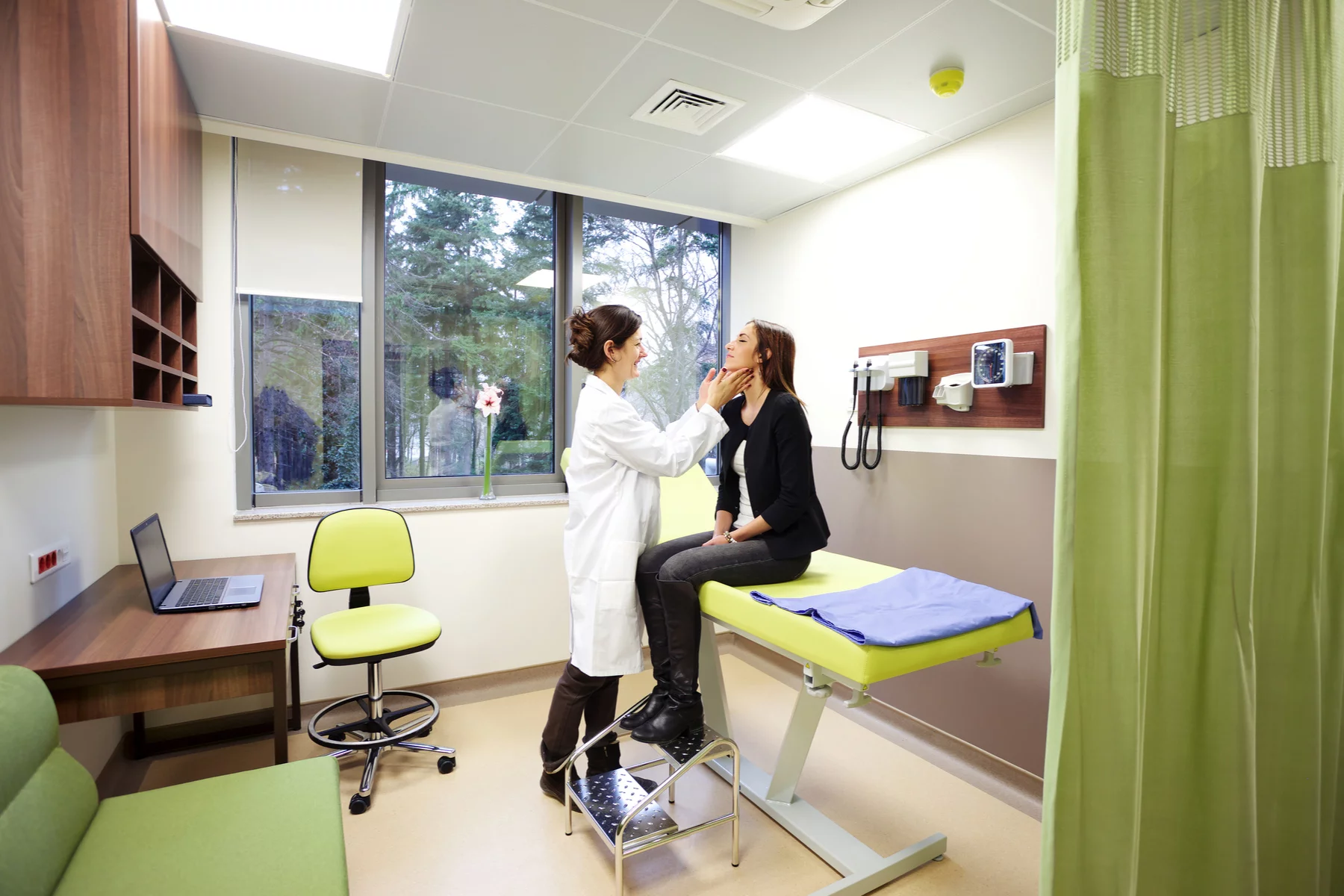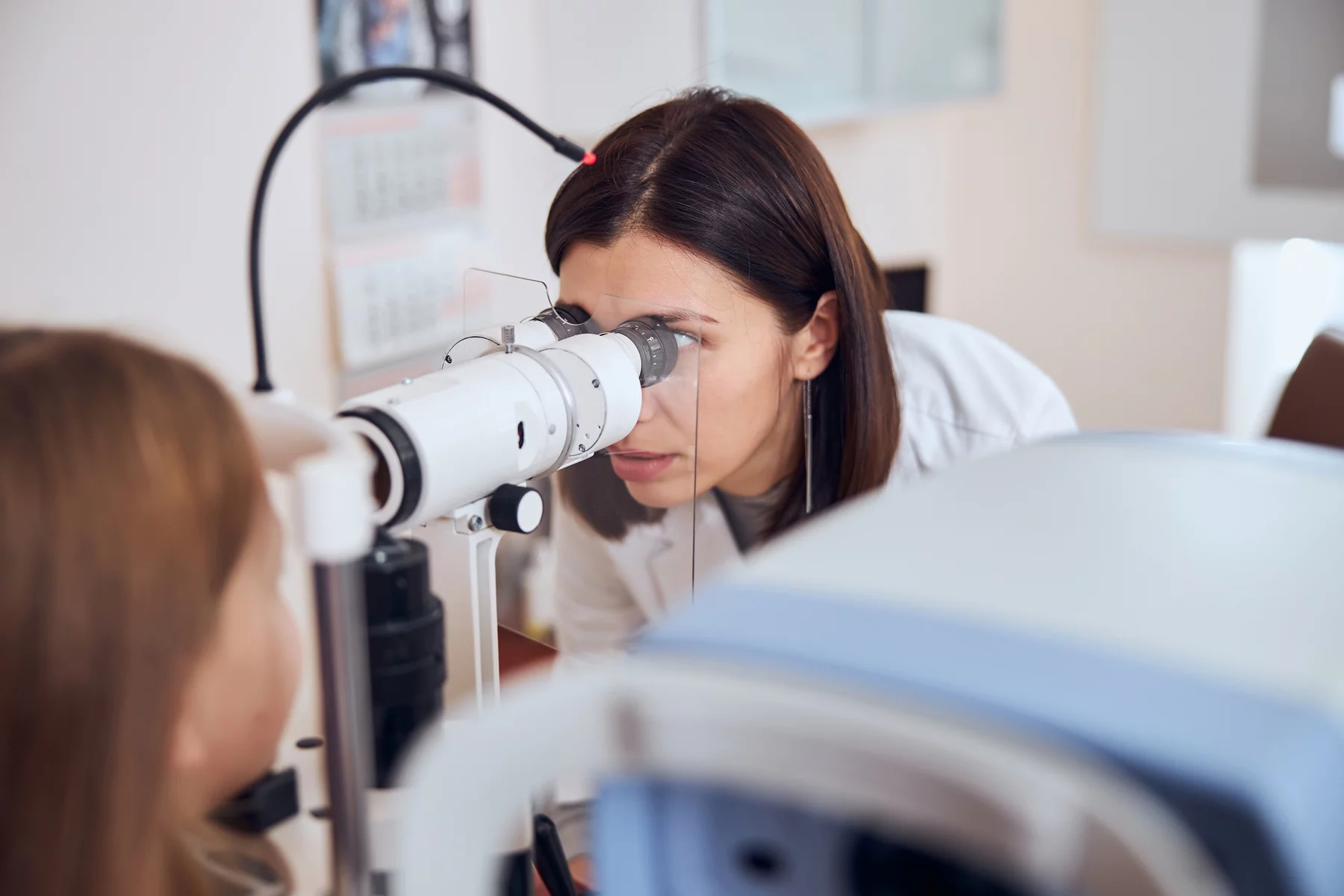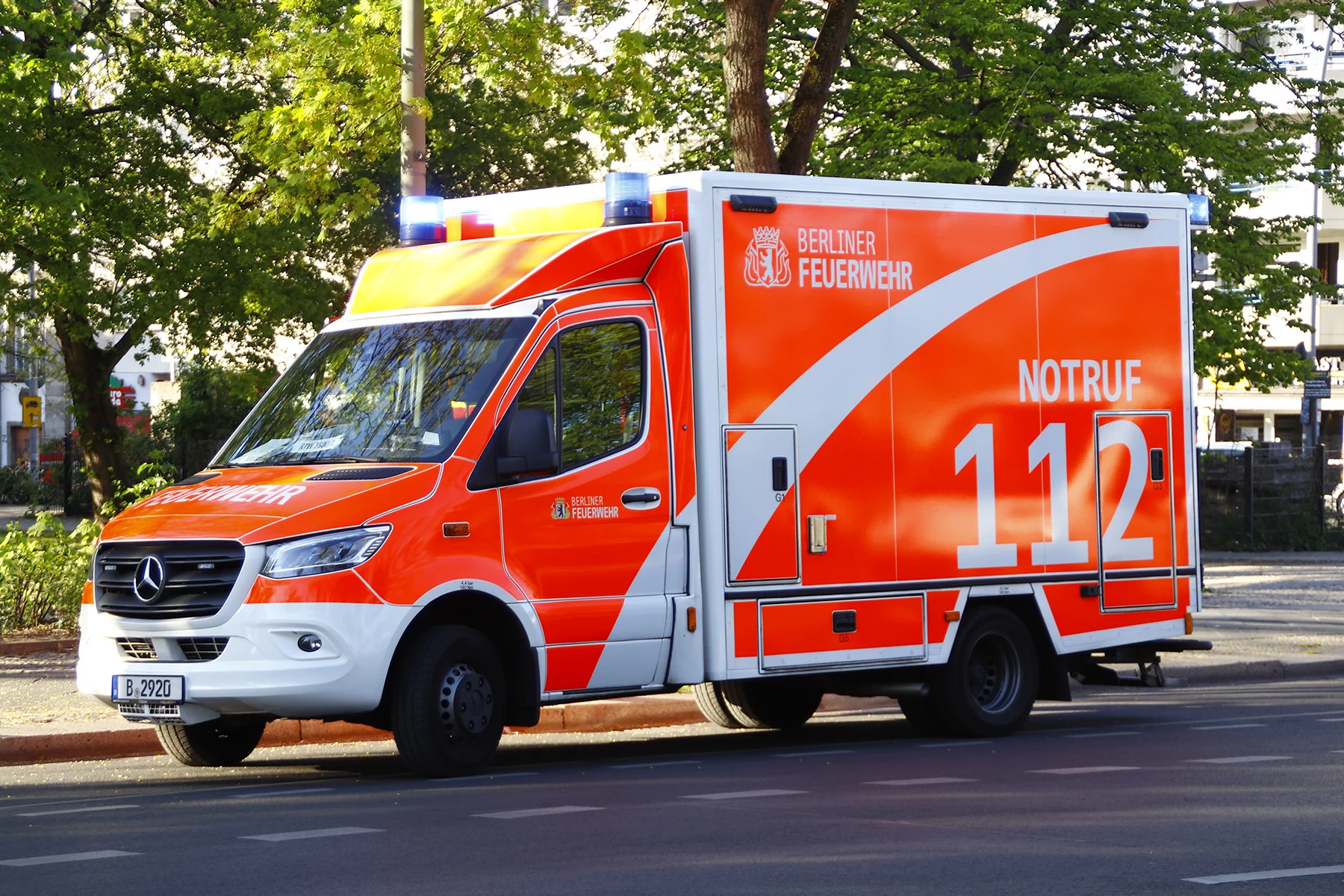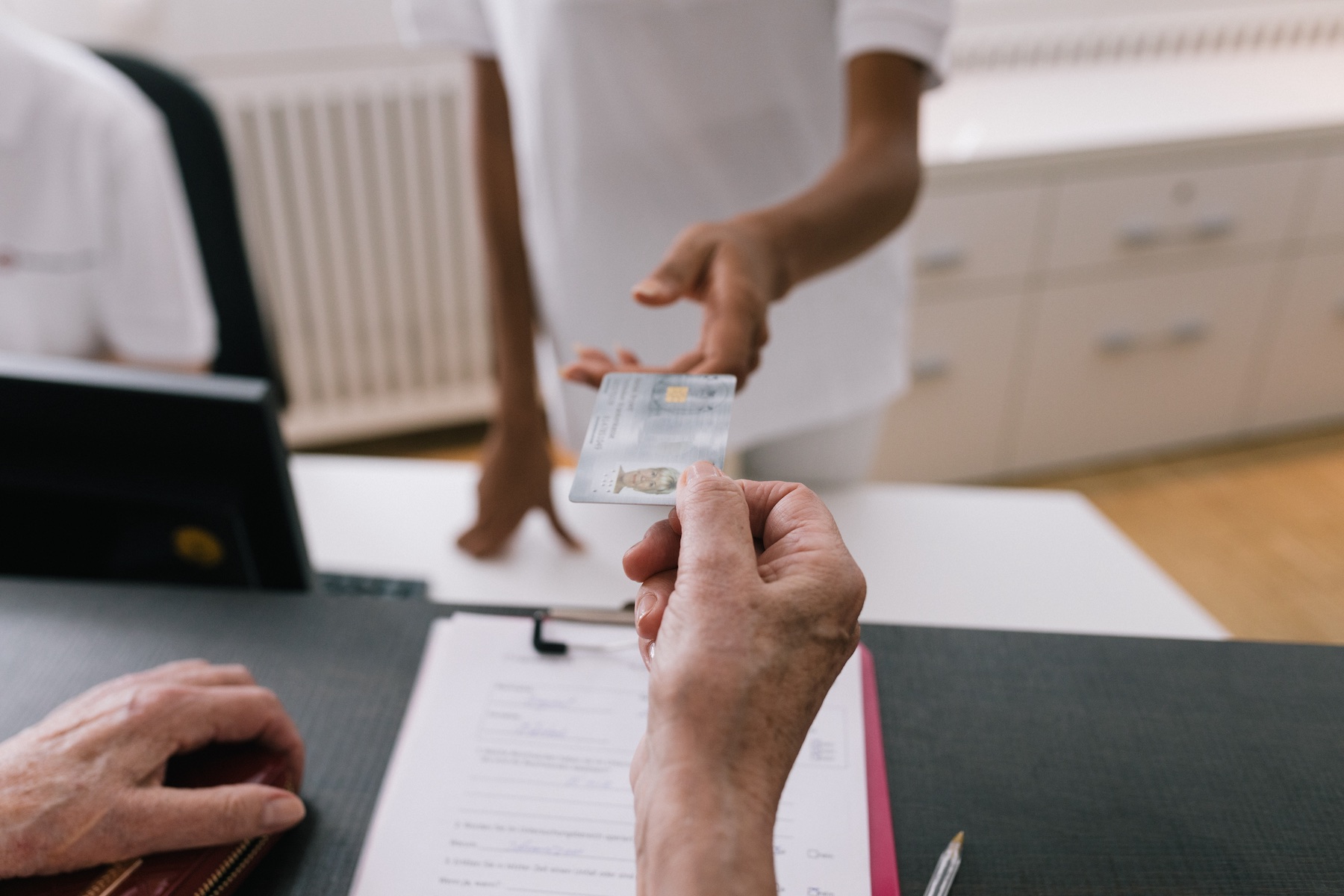Germany is known for its high-quality healthcare, and residents have access to a strong network of medical professionals. That said, getting an appointment can sometimes take time, especially in smaller towns or rural areas.
Whether you’re new to the system or just figuring out how it works, we’ll explain what you need to know about going to the doctor in Germany.
Continue reading for the following information:
- Overview of doctors in Germany
- Who can see a doctor in Germany?
- How to find a doctor near me in Germany?
- How to see a doctor in Germany: step-by-step
- How much do doctor visits cost in Germany?
- Overview of German doctors’ services
- How to complain about German doctors
- Practical medical words in German
- Useful resources
Cigna Global
Enjoy peace of mind while living in Germany with Cigna Global’s long-term international health insurance plans (12+ months). Get tailored coverage, direct billing with many providers, complex case management, and global care on demand, with access to a network of 1.5+ million doctors, specialists, and therapists.
Overview of doctors in Germany
Germany has a top-quality healthcare system that provides essential help to all residents, including expats. The system is funded through a combination of public and private health insurance, which ensures that all patients can access a broad range of medical services, including doctor visits (Arzt) and emergency care.
According to the EC 2023 country health profile, Germany has relatively many doctors compared to the rest of the EU. In 2021, there were 4.5 physicians per 1,000 residents (EU average: 4.1). Of those, very few are family doctors; the country has around 10.5 per 10,000 inhabitants (2022).
That said, the number of doctors can vary a lot depending on the location. For example, in 2024, Hamburg, Bremen, and Baden-Württemberg had roughly 2 GPs per 1,000 patients, while Mecklenburg-Western Pomerania and Schleswig-Holstein had around 3.4.

German doctors must be registered with the State Chamber of Physicians (Landesärztekammer – LÄK) of their region. The different LÄK are overseen by the federal German Medical Association (Bundesärztekammer – BÄK).
Family doctors or GPs in Germany
Family doctors or general practitioners (GPs – Hausarzt) are usually the first point of contact for medical issues. They work either alone or in group practices (Hausarztpraxis), and you are free to choose whichever doctor you prefer. Standard opening hours are from 08:00 to 17:00, Monday to Friday, with an hour in between for lunch. Many health clinics in Germany are closed on Wednesday afternoons, weekends, and public holidays.
GPs handle routine health issues, carry out basic tests, and provide referrals to specialists when needed. They also keep track of your medical records and coordinate follow-up treatments.
Medical specialists in Germany
If you need more specific care, the next step is usually a Facharzt (medical specialist). From dermatologists to neurologists, the German network of specialized doctors is wide-ranging and easy to access, even for newcomers.
Medical specialists usually work in hospitals or private practices. While opening hours can vary significantly depending on the doctor, they’re typically open from 08:00 to 18:00, Monday to Friday, with two hours in between for lunch.
You’ll need a GP referral (Uberweisung) to see a highly specialized doctor, such as those working in radiology, human genetics, laboratory medicine, and oncology. Referrals for other medical specialists are not necessary, though it could help you and them identify your medical situation more easily.
Who can see a doctor in Germany?
Everyone can access medical care to some degree or another, including asylum seekers, refugees, and tourists. However, for non-urgent medical help, you have to pay large out-of-pocket costs or have health insurance coverage – either public, private, or both.

Our article on German health insurance covers the topic (and costs!) in more detail, but basically, there are both public (Vertragsarzt) and private doctors (Privatarzt or Selbstzahlerarzt). While they both offer the same levels of quality care, the difference is in the insurance coverage and availability.
For example, some private doctors and specialists will only see privately insured patients. So, if you just rely on public insurance, you cannot get any treatment. And, while Vertragsärzte are free with public health insurance, they often have longer waiting times and more rushed consultations. Privatärzte, on the other hand, cost more but have more flexible appointment scheduling and longer, personalized exams.
How to find a doctor near me in Germany?
If you are in a life-threatening situation, call 112, which is the free pan-European number for any type of emergency. For urgent (non-critical) medical issues, you can also go to the nearest hospital emergency room (Notaufnahme).
If your situation is less immediate (and more you looking for information), you can find German doctors and GPs listed on the websites Kassenärztliche Bundesvereinigung (KBV) and Privatärztlicher Bundesverband (PBV). The KBV is for public doctors, and the PBV is for private doctors. You can also use the doctor rating site Jameda.
If you’re uncomfortable speaking German, you can also find English-speaking doctors on websites like Doctolib or Mobi Doctor (for doctors in Berlin).
For medical issues outside regular opening hours, you can contact the on-call services (Bereitschaftsdienst) on 116 117. These doctors on duty work all day, even during the weekend and on public holidays.
How to see a doctor in Germany: step-by-step
Step 1: Register with your preferred doctor
German residents are free to choose any doctor they want. You can switch physicians freely, and it’s not necessary to register beforehand. However, many people choose to stick with one GP for consistency and familiarity.

Step 2: Book a doctor’s appointment
Although some GPs accept walk-in patients, most require you to schedule an appointment in advance. You can do so with a quick phone call to the individual medical center or using an online service like Doctena or ZAVA. Specialists don’t do walk-ins unless it’s for urgent medical situations (Sprechstunden).
Wait times for public physicians can be long compared to those of private ones. You can generally expect to wait a few days to see a GP and several weeks or months to see a specialist.
Step 3: Visit the health center
When you go to the scheduled appointment, make sure to bring your health insurance card (elektronische Gesundheitskarte – eGK) and ID. This card proves that you’re insured and contains your health records. It also allows your doctor to upload any prescriptions for medications, should you need them.
If you don’t have health insurance, bring your wallet.
In Germany, doctors’ appointments often run over, and it’s normal to experience a 15–30 minute waiting time, depending on the day and location. In some cases, you may have to wait one or two hours before you can see your doctor. Although this can be frustrating, it does show their commitment to patients’ health.
How much do doctor visits cost in Germany?
Without proper health insurance, doctor or GP consultations cost around €40–70, depending on the services provided. You may also face additional charges for lab work, imaging, and prescriptions. Visits to specialists typically cost an average of €80–150+, also depending on the services provided.
When you have public health insurance, most essential treatments are covered up to a certain point. Some services, like prescription medications and medical aids, require a copayment (Zuzahlungen). For example, you can expect to pay €5–10 (at least) for medicines and €10 per day for hospitalizations.
Of course, when you visit a private doctor, the costs may be higher.

Do I need health insurance in Germany?
Yes. Our article on German health insurance explains everything in full detail, but as a quick summary:
- Public insurance is mandatory for all German residents
- Statutory insurance covers most essential treatment, but not all. Patients will need to pay large out-of-pocket costs or take out private (top-up) insurance to cover it for them.
There are many private health insurers in Germany, and it’s worth shopping around to find the best deals. Aside from the home-grown health insurance funds, there are also international insurers who cater specifically to expats. These providers are ideal for residents who travel outside the country a lot and anyone who prefers expat-focused care:
- Allianz Care
- Cigna Global
- Embea (in case of critical illnesses like cancer and heart attacks)
Overview of German doctors’ services
Prescription medications
If necessary, the doctor may prescribe you medication, which you can pick up from any pharmacy (Apotheke) in Germany. You’ll typically need to pay 10% of the costs yourself, which is at least €5–10.
To find your nearest pharmacy, you can use any search engine or check this list of German pharmacies. Aponet also has a search tool for finding out-of-hours emergency pharmacies (Notdienst). And, if you prefer to order your medication online, you can find government-approved retailers on the BFARM website.

Expats may be shocked to learn that you’ll only get antibiotics as a last resort. While German doctors will always prescribe necessary medication, most try to find solutions that don’t require a prescription. As such, your physician may occasionally recommend alternative, herbal, or home treatments, too.
Medical tests in Germany
German doctors may perform fewer medical tests than you’re used to. Unlike some countries, Germany only does medical testing when they are medically necessary (and not when the patient requests it). For example, it is relatively standard for one-year-olds in the US to have a blood check for anemia. In Germany, however, pediatricians will not recommend this unless there are significant concerns.
That said, if they think it is required, doctors and pediatricians can perform several medical tests on location, such as blood and urine tests. While some test results are immediately available, others need to be analyzed by independent laboratories. In case of the latter, either the doctor will call you with the results or you will receive them by mail.
If you want further testing, you may need to self-advocate, and your insurance may not (fully) cover the costs.
How to complain about German doctors
Germany has several ways to file an official complaint about healthcare malfeasance. For example, if you feel your patient rights are being violated, you can contact the Federal Government’s Patient Representative (Stiftung Unabhängige Patientenberatung Deutschland – UPD). They can advise you on any possible next steps.
If you believe that you have been prejudiced by a doctor, you can also lodge a complaint with the German Medical Association or the KBV (the association for public doctors).
Depending on the complexity of the situation, feedback on patient complaints can be prompt or take weeks or months to resolve. Complaints of malpractice are treated very seriously and will require legal involvement.
It’s worth noting that all investigative proceedings are conducted in German.
Practical medical words in German
Most doctors in Germany can communicate in English. However, it is a good idea to have a phrasebook or a translator app on your phone in case you need to explain more complicated health issues.
You’ll also want to remember some of these medical words in German:
| English | German |
| general practitioner | Hausartz |
| doctor’s office | Arztpraxis |
| appointment | Termin |
| pain | Schmerz |
| headache | Kopfschmerzen |
| stomach ache | Bauchschmerzen |
| back pain | Ruckenschmerzen |
| fever | Fieber |
| cough | Husten |
| prescription | Rezept |
| painkiller | Schmerzmittel |
Useful resources
- Bundesministerium für Gesundheit – official government website of the ministry responsible for healthcare in Germany
- German Medical Association – official website for the national German doctors’ organization
- Gesund Bund – government e-portal with information and answers to patients’ questions








